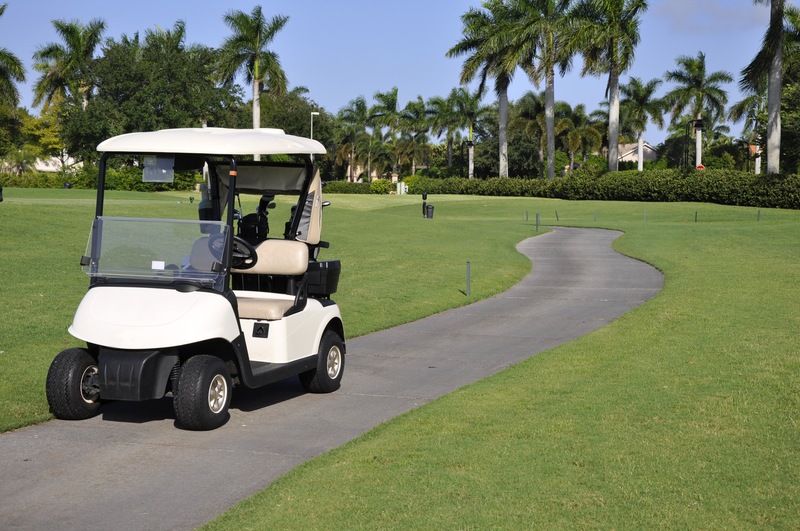
Golf cars have become a prominent form of not just recreation in Florida, but transportation, too. There are many communities whose infrastructure is conformed to the regular use of golf cars, becoming a staple transportation mode for lots of residents. They are cheaper to buy, maintain, and create much less pollution, both in the air and taking up space. Here are some of the laws that are important to know thanks to the burgeoning use of golf car in Florida.
Golf Cars - Low-Speed Vehicle?
A low-speed vehicle (LSV) is any vehicle that has a top speed between 20 to 25 mph, and has four wheels. Many golf cars do not actually fall into this category, often not quite hitting that 20 mph minimum. Because of this, there are a separate set of laws that govern the use of golf cars in Florida, but once the vehicle reaches over 20 mph, the set of applicable laws totally change. For example, golf cars are legal to drive by anyone 14 and older and where the speed limit is under 25 mph.
However, once a golf car is being driven over 20 mph, it transitions to LSV laws, which require a driver’s license and vehicle tag, thus barring any 14-year-old from driving the vehicle. Anything above 20 mph automatically turns these requirements on. This also means you will need to carry traditional auto insurance (which includes personal injury protection) when driving. Keep this in mind when you are thinking about speeding up that golf car!
When can I drive?
Legally in Florida, golf cars can only be operated from sunrise to sunset. This law is stringent with any golf car that does not have any lights. However, local laws may be different. With the prevalence of golf carting communities and towns in Florida, such as The Villages, you can ride your cart around at night so long as it has headlights, turn signals, brake lights, and reflectors on the front and rear sides of the golf car. Some also require windshields for night driving.
Am I Subject to Tickets?
Yes, you can be found responsible and ticketed for many of the same types of infractions you may make in a regular vehicle. Speeding is especially an issue, as street-legal cars should not be driven above 25 mph, to begin with. You can even be subject to a DUI charge. Make sure to always be driving with your necessary street legal fixtures (e.g. lights and proper turn signals), follow all applicable road rules, and never drive on a road that is not golf car legal.
Can I modify my golf car?
Yes, but only to certain extents. You need to be especially careful when modifying anything that could affect the speed of the cart also. Overturning golf cars are a huge risk and the most common injury in accidents, and modifying weight balance or speed are often the culprit here. If you choose to modify, your insurance company will be much less likely to pay for damages if an incident occurs and you make a claim. Since the additions are unregulated and therefore unchecked by insurance companies, they have no way of guaranteeing that those modifications had no part in the incident.
Golf cars are an excellent alternative to driving a regular car, and follow some of the same laws. Stop by your local Volusia County golf car dealer at Tee Time Golf Carts today to learn more about the laws governing golf cars, and how you can get ahold of your very own EZ-Go or Tomberlin vehicle.